On October 18th, the Future Education International Salon, hosted by the Future Education Institute, was held as scheduled in the F308 Smart Classroom of the LiJie Building. The salon invited Dr. Mark William Johnson, an educational technology lecturer at the University of Manchester in the UK and a senior researcher at the Department of Science Education at the University of Copenhagen in Denmark, to give a keynote speech in the form of remote teaching. More than 250 teachers and students from the Far Eastern Federal University in Russia had enthusiastic discussions with teachers and students from the Future Education Institute on the development of future AI technology and the application of AI technology in classrooms. At the same time, they explored new models of international university joint teaching and online and offline interactive teaching.
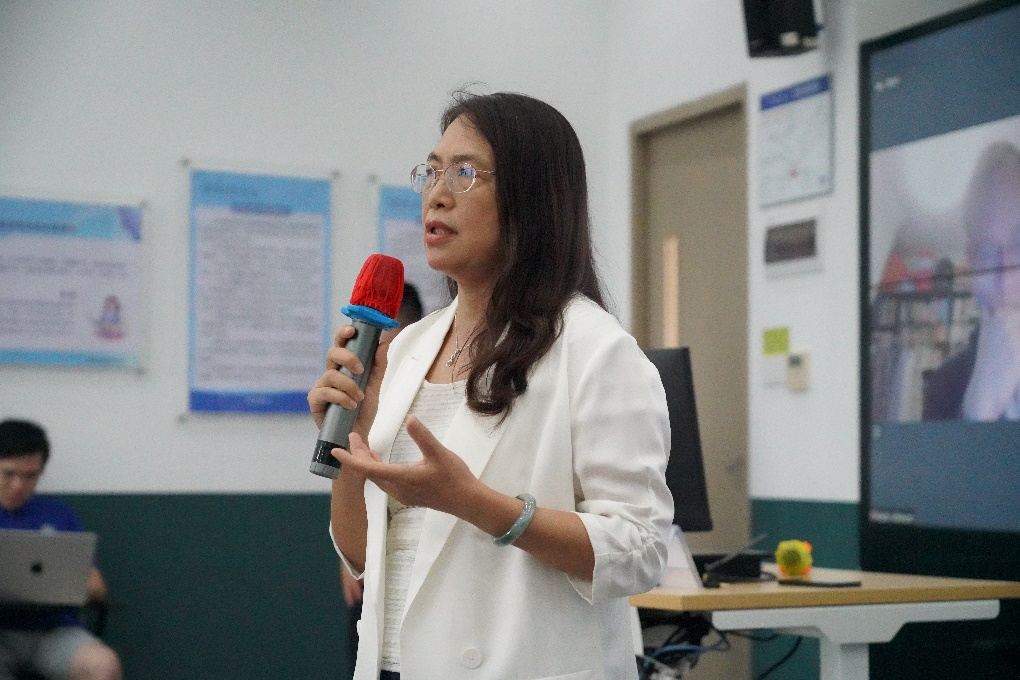
Image: Professor Yuan Li hosting the salon.
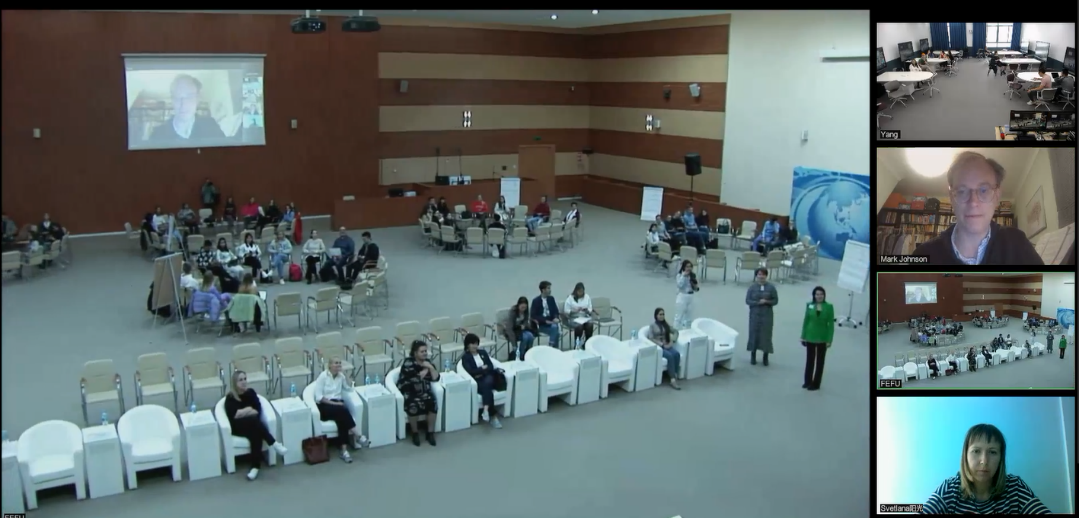
Image: Russian Far Eastern Federal University Salon Session
Dr. Mark William Johnson began by discussing human imagination and scientific progress, using examples of rocket launch and recovery from Space X and NASA to introduce the complexity and specialization of current technology and natural science knowledge. He pointed out the fragmentation of knowledge in the traditional independent course structure of past disciplines, while the disruptive development of technology has brought even more complex professional knowledge and exacerbated global uncertainty. Therefore, Dr. Johnson proposed a decentralized educational model based on AI technology, in which schools can rely on AI technology to achieve equal dialogue between teachers and students, expand digital learning space, stimulate student initiative, establish a complete knowledge framework, and actively expand new knowledge areas. He demonstrated how students can use AI technology to interact with the external teaching environment and discover new research directions, providing rich imagination space for theoretical and practical innovation in the future through an innovative "AI game".
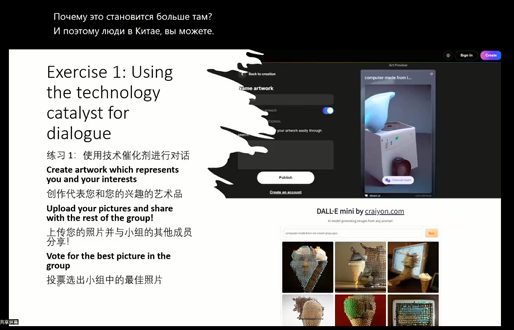
Image: Using technological means to conduct teacher-student dialogue.
During the Q&A session, there was an exchange between the teachers and students of the Future Education Institute and Dr. Mark Johnson. Firstly, Mr. Cui Xin, a teacher at the Future Education Institute, asked how similar "classroom game" activities can break through the category of "play" and be truly implemented in teaching practices that combine education with entertainment. Dr. Johnson suggested using the consciousness origin principle in Mark Solms' "The Hidden Spring", which states that the cycle process of the ID and EGO forms the pattern of knowledge generation, and interaction between students and the outside world or others optimizes the learning process, achieving the Super-ego. He believes that "play" is a way of "dialogue with the outside environment" and "dialogue with others," and that it can inspire creativity, imagination, and spark new thinking. He believes that "play" is the process of education, and education does not need to be boring. Learning does not have to be dull, and teaching should be a happy thing.
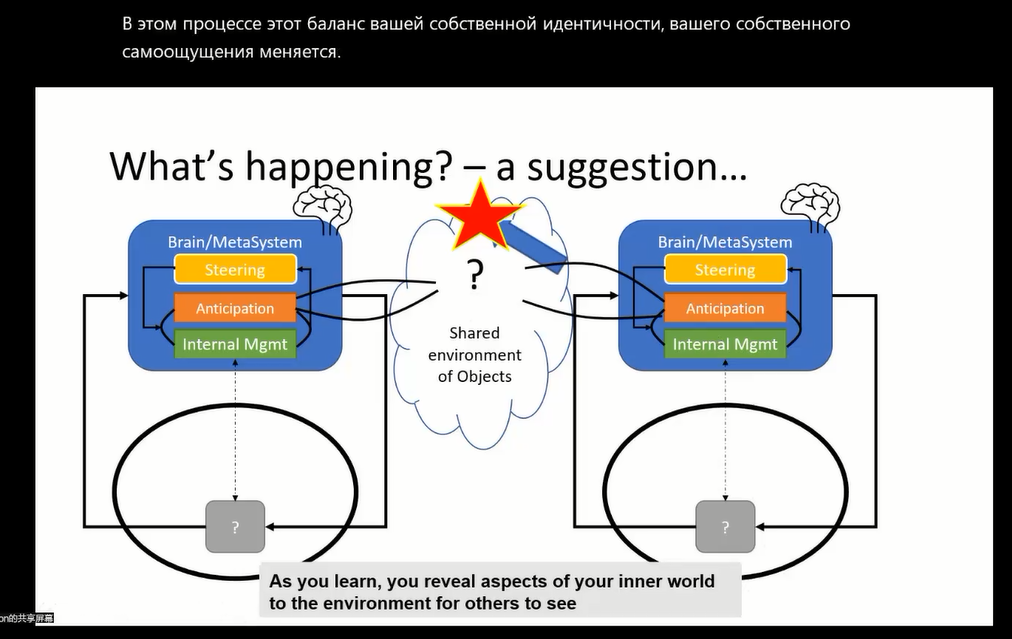
Image: AI creating the path of knowledge.
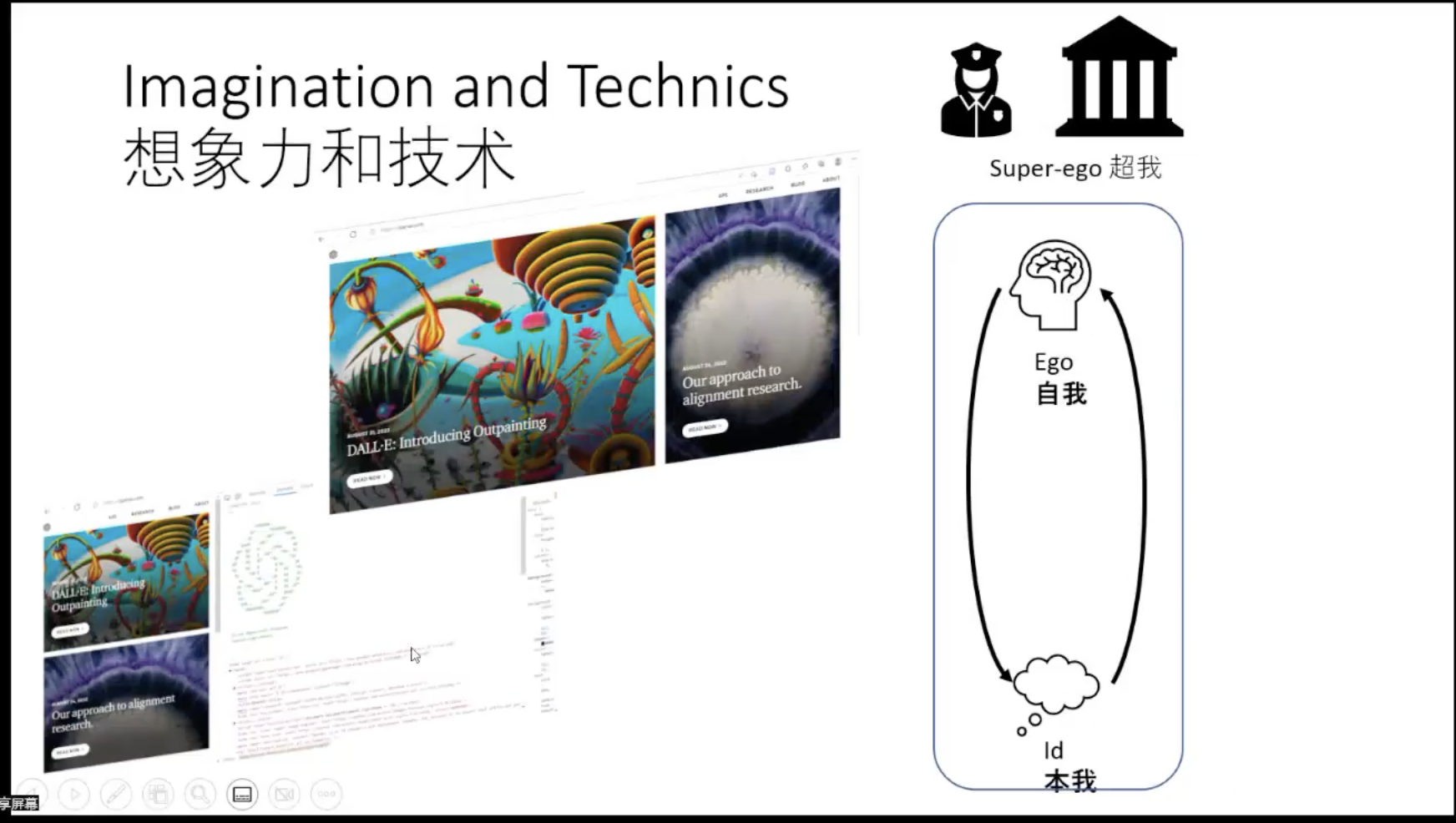
Image: Theory of the origin of self-ego consciousness.
Next, Zhang Yang, a research assistant at the Future Education Institute, asked how to effectively prevent the "misuse" of AI technology, avoiding the problem of being unable to evaluate the true learning status due to the "misuse" of technology, such as students habitually using AI-based grammar correction software for writing, which gradually leads to a decline in their writing level. Dr. Johnson stated that this depends on how humans coexist with technology. He referred to the idea in James Bridle's "Ways of Being: Beyond Human Intelligence" that the relationship between AI and humans is a new overall development based on cognitive complementarity and diversity. Therefore, using technology to promote educational development depends on how teachers and students use AI technology for collaborative dialogue.
A freshman majoring in Chinese language and literature in the 2022 cohort asked how to change the situation in some areas and schools where classroom teaching is mainly focused on imparting textbook knowledge and lacks dialogue and communication between teachers and students. Can new teaching models change this situation, and how can classroom interaction between teachers and students be significantly enhanced to cultivate imagination, critical thinking, and innovation? Dr. Johnson stated that he has explored this issue in his teaching and research project at the Far Eastern Federal University, which is to change the top-down teaching curriculum model. In the project, students are divided into small groups, and 20 teachers serve as teaching facilitators, changing the traditional teaching structure by combining team teaching, co-design, dialogue education, active learning, tool-based teaching methods, and flexible course evaluation.
At the end of the lecture, Dr. Johnson expressed his intention to cooperate with dialogue and technology in the future, and the salon ended successfully in a pleasant atmosphere.



 Last Page
Last Page

 Phone:0756-3621121
Phone:0756-3621121
 Email:ccie@bnu.edu.cn
Email:ccie@bnu.edu.cn